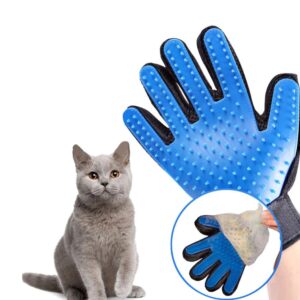
Menu
Hookworms are a common and dangerous parasite that can affect dogs, leading to serious health issues if left untreated. This guide aims to provide comprehensive information on preventing and treating hookworms, ensuring your furry friend stays healthy and happy.
Hookworms are parasitic worms that live in the small intestine of dogs. These tiny parasites are a few millimeters long and feed on the blood of their hosts.
The life cycle of hookworms starts when eggs are excreted in the feces of infected dogs. These eggs hatch into larvae, which can infect other dogs through skin contact or when they are ingested.
Dogs can get infected with hookworms through several ways, including:
symptoms of hookworm infection in dogs include:
In severe cases, dogs may exhibit extreme weakness, blood in their stool, or sudden collapse.
A veterinarian can diagnose hookworms through fecal examinations to detect the presence of hookworm eggs.
The most common test is fecal flotation, where stool is mixed with a solution that causes the eggs to float to the surface and be examined under a microscope.
Immediate treatment involves administering anti-parasitic medications that can kill the adult hookworms.
Medications such as pyrantel pamoate, fenbendazole, and ivermectin are commonly used to treat hookworm infections.
Home care involves keeping your dog comfortable and ensuring they have a clean, warm place to rest.
Feeding your dog a nutrient-rich diet can help strengthen their immune system and recover from anemia often associated with hookworm infections.
Regular deworming, as recommended by a veterinarian, is one of the most effective ways to prevent hookworm infection.
Keeping your yard clean, preventing your dog from eating soil, and having regular health check-ups can minimize risk.
Some natural extracts, such as those from neem or wormwood, have been suggested to help treat and prevent worm infections.
Adding pumpkin seeds or carrots to your dog’s diet can help naturally combat parasites due to their vermifuge properties.
After treatment, regular check-ups are essential to ensure that the hookworms are entirely eradicated.
Keep an eye on your dog’s overall health and stool quality as they recover from an infection.
Untreated hookworms can lead to severe complications, such as chronic anemia or protein loss.
Puppies are generally more susceptible to severe symptoms due to their undeveloped immune systems.
Sharing information about hookworm prevention and treatment can help reduce the incidence of infection in your community.
Encouraging responsible pet ownership and regular veterinary care promotes the health of all pets in the community.
Developments in pharmaceuticals and better diagnostic techniques are continually improving the management of hookworm infections.
Researchers are working on vaccines and more effective treatments that could further ease the burden of this parasitic disease.
If your dog’s symptoms do not improve or worsen, it’s crucial to seek veterinary care immediately.
Regular check-ups can help catch and prevent hookworm infection before they become a serious issue.
Preventing and treating hookworms in dogs involves a combination of vigilance, regular veterinary care, and informed care strategies. By ensuring your pet receives the necessary prevention and treatment, you can keep your dog healthy and free from hookworms.
Thank you for being a part of our community and for reading our blog. If you’re interested in any of the products in my store, feel free to browse our latest offerings. Your support means a lot to us and helps us continue providing valuable content and products for pet lovers like you. Happy caring for your furry friend!
External Sources:

Welcome to YappyPet.com, your ultimate destination for all things pet-related! Founded by a passionate 27-year-old pet enthusiast, our website is dedicated to providing a haven for fellow animal lovers.
Join us on this exciting journey as we celebrate the unconditional love and joy that our furry friends bring into our lives.



All rights reserved. YappyPet